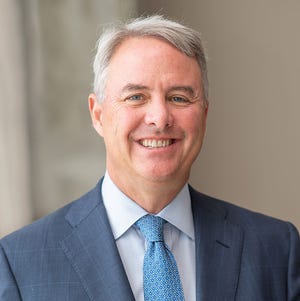5 tips on how to prepare when rescheduling a mammogram, colonoscopy or annual oncology exam during the pandemic.

Jeff Patton, MD
These worrisome trends are on the minds of oncologists across the country, especially as confirmed COVID-19 cases continue to increase nationwide, including at home in Tennessee.
We must all take the necessary steps to mitigate spreading COVID-19, but we cannot trade this pandemic for another public health crisis due to delayed cancer diagnoses that exacerbate stage migration – when a cancer is detected at a stage that is less treatable and also more costly.
It’s smart to play it safe, but this also means getting regular care, from a mammogram or colonoscopy that can catch a cancer when it’s most treatable to an annual oncology check-up to ensure a disease hasn’t reared its head again. Delaying an exam won’t make cancer go away, but it might make the road to recovery more difficult. How should consumers prepare when rescheduling a mammogram, colonoscopy or annual oncology exam? Here are five tips to safely return to care:
5 ways to stay safe at the doctor’s office
- Check with your provider about their COVID-safety protocols so you know what to expect before your appointment.
- Take your temperature and wash your hands before you leave the house, wear a mask in the car on the way, wear gloves when necessary, and avoid touching your face, especially your nose or eyes.
- Don’t show up early. Do use automatic doors, avoid touching surfaces and try to remain 6 feet apart from others in the office.
- Limit visitors who go with you to your appointment. By limiting the number of people, your exposure becomes limited, too.
- Be patient. Doctors are spacing out appointments to allow for proper equipment and room sterilization, so patience and collaboration with your care team are essential.
Things are going to look different
Importantly, your physician’s clinic will look different than it did before the pandemic, which should engender peace of mind that doctors have doubled down on safety precautions. When patients return to a caregiver setting, they will see fewer people in the clinic as appointments won’t be booked back to back. Patients should expect to have their temperature checked upon arrival, wear a mask at all times and see their nurses and physicians wearing a full array of personal protective equipment.
In infusion centers where patients receive chemotherapy, chairs will be more widely spaced out to adhere to social distancing guidelines. And Plexiglas will likely separate you from the person at the front desk.
While the precautions both patients and physicians’ offices are taking might seem to make a visit to the doctor less intimate, patients and doctors can play it safe by mitigating against the spread of COVID-19 and going back on the offense against cancer to prevent the deleterious effects that accompany a delayed cancer diagnosis.
Dr. Jeff Patton was the longtime CEO of Tennessee Oncology before becoming the CEO of Nashville-based OneOncology.